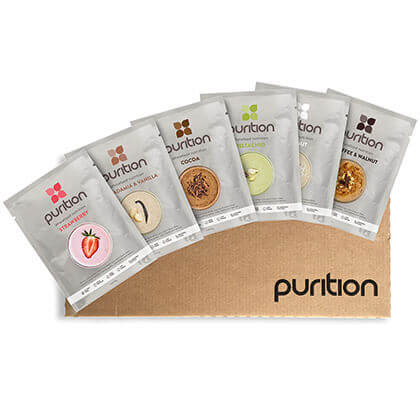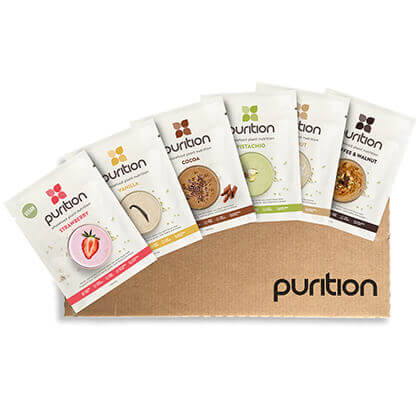Addicted to sugar? Ask Dr Jen Unwin

A question most of us will have probably asked at some point in our lives, either out of interest or because our sweet tooth is getting a little out of hand! It’s a good question and who better to ask than Dr Jen Unwin FBPsS, Clinical Health Psychologist and wife of GP Dr David Unwin (The Low Carb Doctor).
Jen has worked for the NHS for over 30 years, helping people with chronic illness to improve their wellbeing through lifestyle change. In recent years she and her husband have successfully pioneered the use of low carbohydrate diets in the treatment of obesity and diabetes – so she certainly knows what she’s talking about!
Thank you Jen for sharing your thoughts on sugar addiction and also for providing some top tips on how to reduce consumption of refined sugar and starchy carbs.
Over to you Dr Jen Unwin FBPsS…
Sugar is everywhere these days
In the garage when you fill your car up, along the aisles of the supermarket and even on hospital corridors. It’s in packaged food, including those masquerading as ‘healthy’ like low fat yoghurts. I even checked a label on some coleslaw recently to see sugar listed as an ingredient.

Obesity and associated problems such as type 2 diabetes are more and more prevalent and not for want of people trying to count calories and eat low fat. Many of us struggle to moderate our intake of sugar and even experience physical and psychological cravings if we try. Might it be possible to be addicted to sugar and starchy carbohydrates that break down into sugar in our bodies?
Indicators of addiction
Let’s take some criteria for substance use disorder from the American Psychiatric Association and see how many of these statements apply to us personally when we think about our sugar and refined carb consumption:
- Having more than you intended
- Wanting to quit or cut down and not being able to
- Spending a lot of time thinking about and getting it
- Having cravings or strong desires for sugar/carbs
- Struggling with work, school or home activities
- Continued consumption despite it causing problems at work or socially
- Continued consumption despite acknowledged physical or psychological difficulties
- A need for increased amounts to get the same desired effect
- Cravings and physical symptoms of withdrawal if sugar/carbs are unavailable, which are relieved on consumption
At one time I would have scored 7 myself. Anything above 2 indicates some degree of addiction. But how is it that food can become addictive? There are a number of possible mechanisms.
How food can become addictive
The first is ‘hyper-palatability’. Sweet sensations are an intense sensory pleasure for evolutionary reasons. We were driven to find and consume sweet foods to help us survive food scarcity. The modern refinement of sugar simply adds to its addictive properties.
Secondly, after eating sugar the brain can more easily turn tryptophan into serotonin; a feel good hormone. We feel relaxed and sleepy. Unfortunately, if repeated too often the brain is depleted of serotonin, hence the need for increased consumption and resulting low mood in the long run.
The brain also releases dopamine, the ‘reward’ neurotransmitter. If consumption continues the brain down regulates its dopamine receptors, similar to other addictions and cravings increase. Lab animals have been shown to seek out sugar over cocaine if they were addicted to both.

The relief from withdrawal symptoms of consumption is very rewarding and can form strong habits, such as always eating biscuits in the afternoon or having a favourite brand of chocolate.
Our culture has embraced sugar as ‘a treat’, ‘a reward’ and integral to all our celebrations; birthdays, Christmas, Easter, Halloween, holidays etc etc etc. So much so that foregoing sugar can be a major social negotiation!
Hidden truths
The amazing truth is that sugar addiction is not acknowledged as an addiction by the scientific community, so there is very little funded research. Large vested interests are seemingly at play. For example, a paper in 2016 that denied sugar was addictive was sponsored by Rippe Health who received 10 million dollars over four years from The Corn Refiners Association who make high fructose corn syrup.
Studies that have been done show up to 20% of us to be sugar addicts and 80% of sugar addicts to be obese or overweight. Sugar addiction is also strongly linked to other addictions and psychological problems such as anxiety and depression.
Sugar addiction in remission
In a small study I carried out with www.diabetes.co.uk, 25% of participants with type 2 diabetes were classified as sugar addicts when they signed up for the low carb program. The good news was that this reduced to 7.8% at the end of the program.
Much more research is needed into how to support people to escape sugar addiction but the first step is for the scientific community to recognise that sugar addiction exists and can be the cause of much distress for people.

How to reduce sugar consumption
My personal tips are to reduce your consumption of refined sugar and carbohydrate and replace them with nutritious whole foods. If you can’t reduce step wise you may need to go ‘cold turkey’. If you are on medication make sure you take advice on this. Seek out rewards that are not food related; exercise, hobbies, socialising etc etc and find some support locally or online because like any addiction you may struggle at times and need people who understand how hard it is. Finally, let’s help our children and grandchildren by treating them with outings and activities and not sugar so that we aren’t creating a generation of future sugar addicts.
By Dr Jen Unwin, FBPsS
Did you know Purition can help you cut down on sugar and achieve a low-carb diet for type-2 diabetes in a natural way? Made with real food ingredients, each serving contains less than 4g of carbohydrates and 7g of digestion-slowing fibre.
No need to worry about added sugar, crazy chemically ingredients you can’t pronounce or artificial sweeteners by the bucketload. We use a hint of stevia (a natural, plant-based sweetener) to balance the flavour – rather than add to it – and that’s all. Nothing more and nothing less.
It can take a couple of days to get used to the natural taste of Purition. But stick with it, swap your usual breakfast for our nutritious shakes and you will start to feel the difference. Become your own evidence.
Find out more about Purition and diabetes.
Read more...
Be carb smart with Purition
Dr David Unwin talks low-carb
Low-carb alternatives
Soups & shakes to tackle
type-2 diabetes
What you should do next...
1. Subscribe to our newsletter
Subscribe to our newsletter for the latest news, recipes and advice about healthy eating.
2. Try Purition for 14 days
Unlock all the benefits of a whole foods diet with none of the effort. Get 2 weeks of easy nutritious meals & pick your own flavours!


